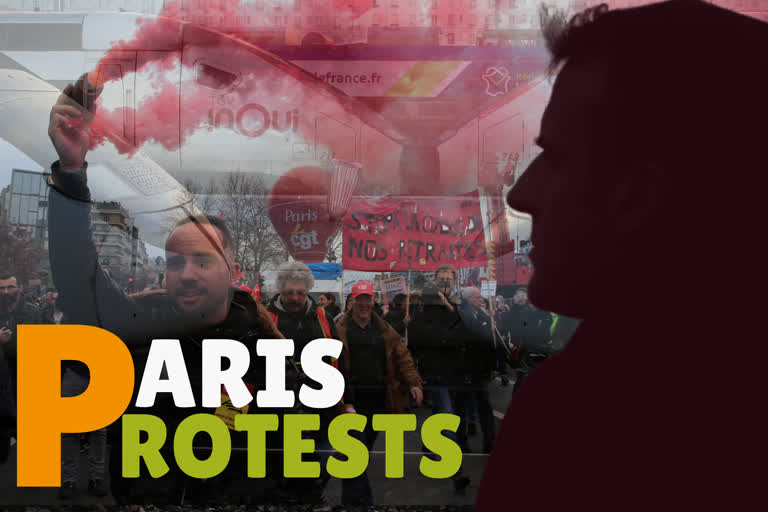Paris: Traffic improved slightly on French trains on Thursday as nationwide strikes over the government's retirement reform entered the 15th day and small signs of progress emerged in negotiations with unions.
However, the crisis hitting one of the world's biggest economies at the height of the holiday season is far from over.
Anti-government protesters are keeping up the pressure on President Emmanuel Macron with a new march through Paris in the afternoon. And some workers are expected to maintain their strike through the Christmas holidays and beyond.
The French National Railway Company's (SNCF) authority said that about 60% of trains were at a standstill on Thursday, down from 90% earlier in the strike. While provincial cities have suffered fewer problems, tourists and Paris commuters alike are still struggling to get around the French capital, spending hours fighting through clogged intersections or waiting for elusive subway trains.
The centrist Macron, a former investment banker, wants to raise the retirement age to 64 and said that the current pension system costs too much; unions say that the pension reform is part of Macron's plans to dismantle hard-won worker rights, and want to preserve a system that allows some workers to leave as early as their 50s.
Read also: After US withdrawal, Xi-Macron unite on Paris pact
Macron showed a willingness on Wednesday to compromise and Prime Minister Edouard Philippe launched negotiations with unions on potential amendments to the landmark pension reform bill. Philippe will meet again with union leaders and employers' representatives on Thursday.
The government hopes to reach a deal with more moderate players such as France's largest union, French Democratic Confederation of Labour (CFDT), which Macron hopes may divide and weaken the protest movement.
CFDT Secretary General Laurent Berger on Thursday said that the government showed a "willingness to discuss" the issue.
He acknowledged that given lengthening life expectancy and the high cost of France's pension system, “yes, we will have to work a bit longer" — but said if the government doesn't abandon the idea of fixed new retirement age of 64 by January, his union will continue to protest.
Recent polls show a majority of the French support the strikes and protests, as they fear the proposals will make them work longer in return for lower pensions.
Read also: France: Firefighters battle flames at Rouen chemical plant



